These days, barely a week goes by without some CCG raising thresholds for treatment to such an extent that only those with a perfect BMI can receive bariatric surgery, or only patients with pitch perfect hearing are eligible for hearing aids. These thresholds are always, of course, for medical reasons and the fact that commissioners don’t have to pay for any treatment is a secondary consideration.
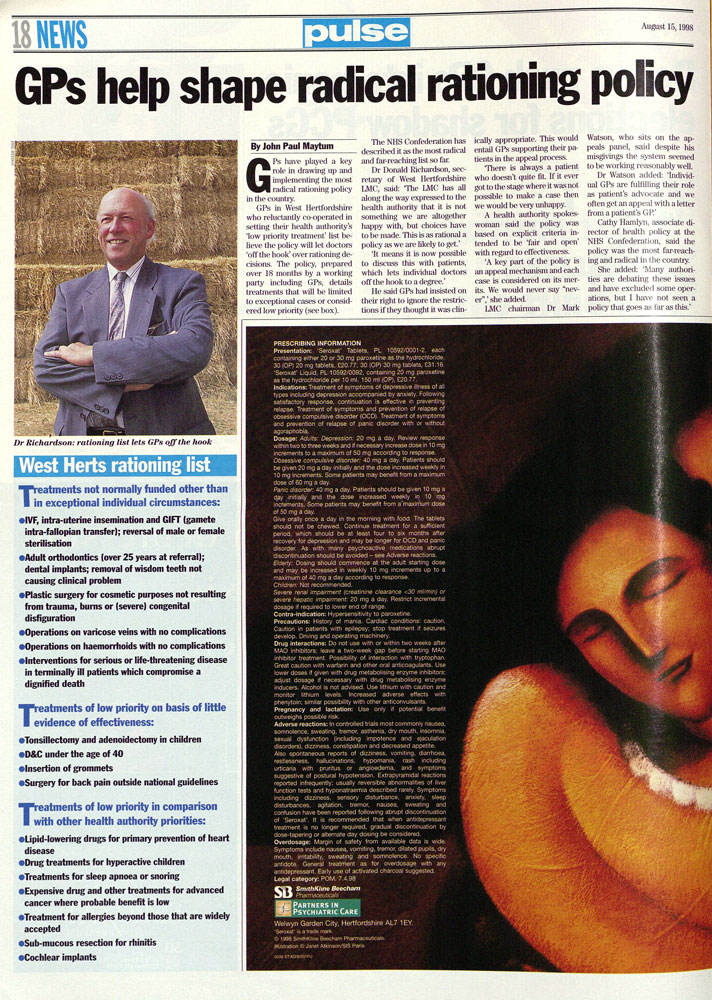
rationing birthday 1998 08 left hand page 712x1000px
But rationing in the NHS is not new. Even in the first days of New Labour, the rationing of treatment was a fact of life for GPs. In 1998, long before CCGs were a twinkle in Andrew Lansley’s eye, GPs in Hertfordshire were involving themselves in decisions to mitigate the effects of rationing.
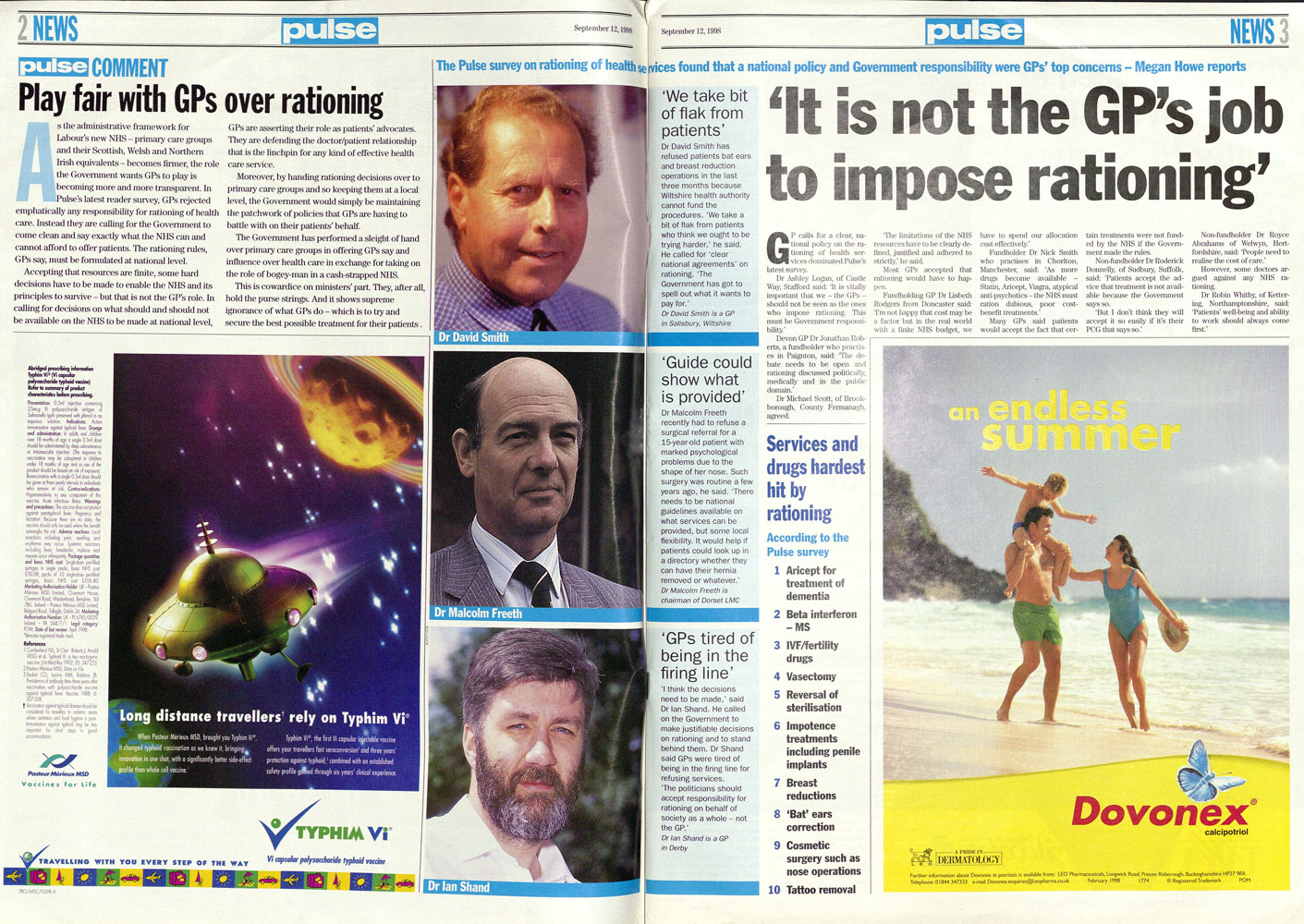
rationing birthday 1998 09 dps 1411x1000px
That same year, Pulse ran a major investigation on rationing, with a survey revealing which drugs were most like to be rationed – Aricept for the treatment of dementia took top billing. Our editorial took the view that: ‘The Government has performed a sleight of hand over primary care groups in offering GPs say and influence over health care in exchange for taking on the role of bogey-man in a cash-strapped NHS. This is cowardice on ministers’ part.’ Again, this was before the days of CCGs.

rationing birthday 2007 09 left hand page 718x1000px
The blocking of GP referrals is no new thing either. In 2006, there were murmurings of discontent around the new referral management systems, which were diverting dermatology referrals to GPwSIs or private providers.
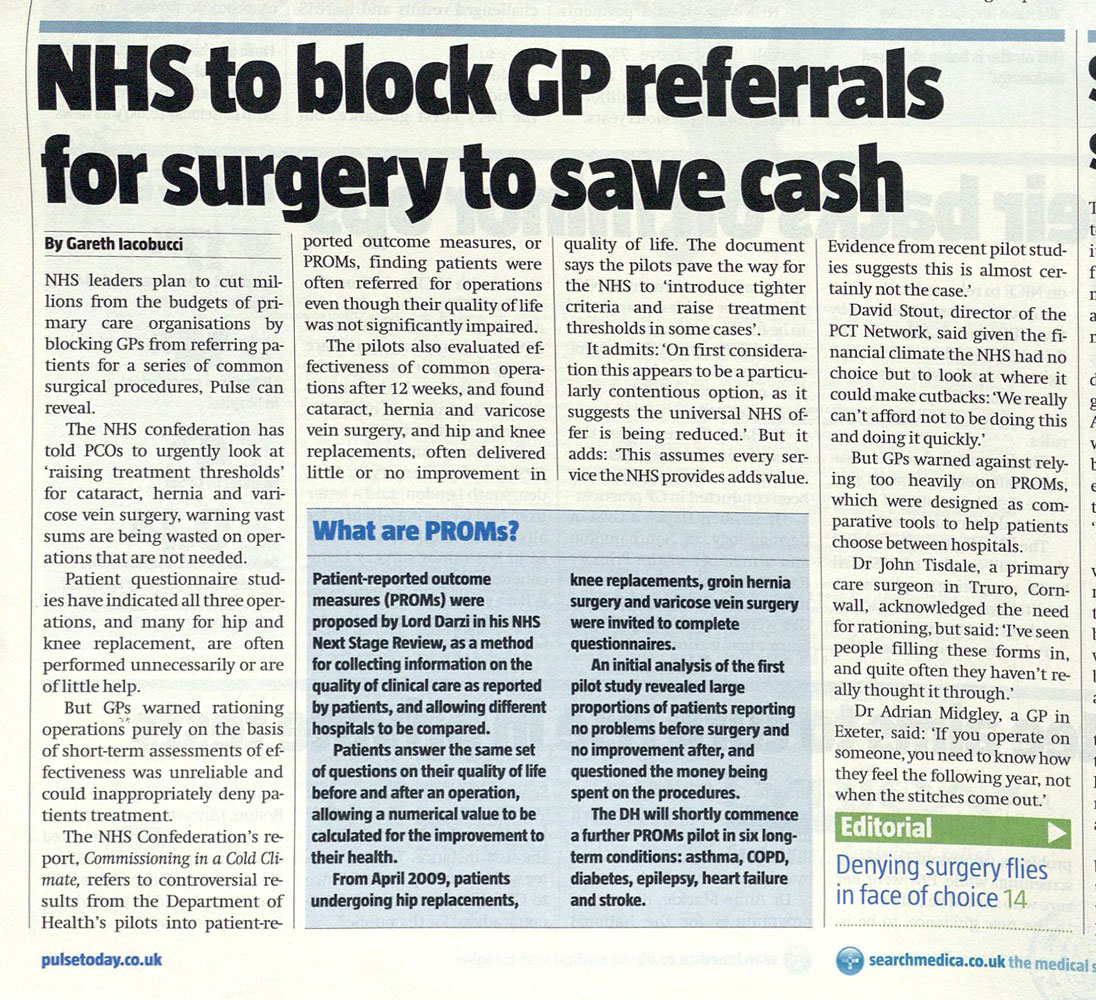
rationing birthday 2009 06 nhs to block gp referrals 1096x1000px
In 2009, the NHS Confederation were already talking about raising the thresholds for cataract surgery. A report said: ‘On first consideration this appears to be a particularly contentious option, as it suggests the universal offer is being reduced.’ If only they knew what was to follow in the following years.
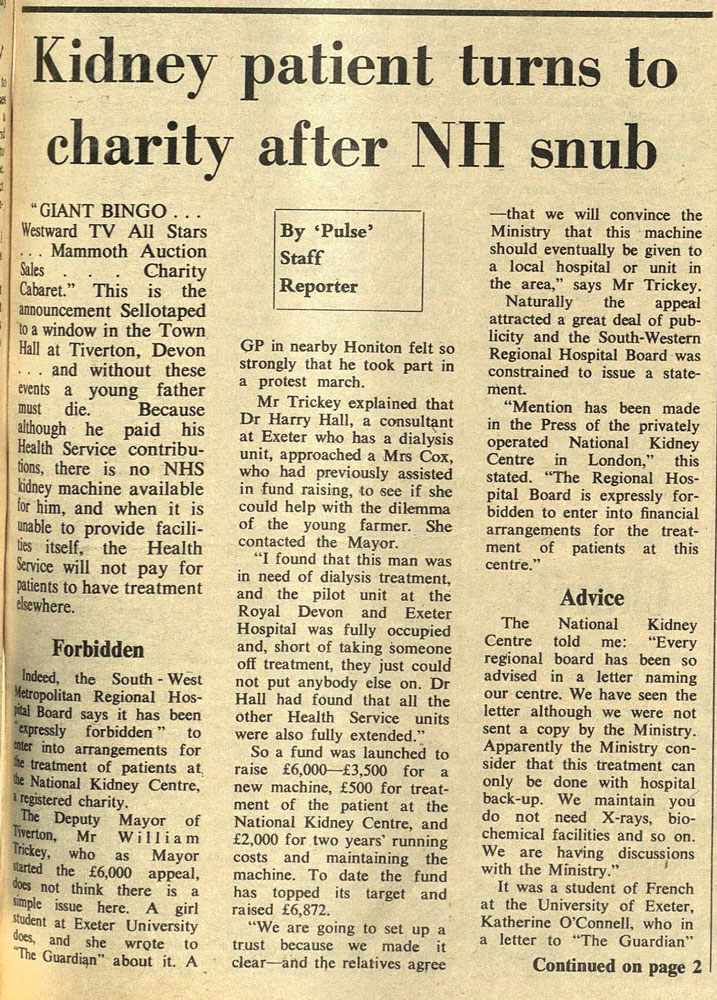
rationing birthday 1967 07 kidney patient 717x1000px
But even by this point, rationing was old news. Our front page from July 1967 tells of a village holding a ‘GIANT BINGO’, mammoth auction, and charity cabaret, warning ‘without these events a young father must day’. This is because ‘there is no NHS kidney machine available to him’, and the hospital board has been ‘expressly forbidden’ from entering into arrangements with a charity that can provide one.

rationing birthday 1967 06 top half leftpage 1000x861px
Earlier that year, Pulse reported an egregious form of rationing – Harrogate Baths were no longer to be available to NHS patients. And GPs should take some blame, the article said: ‘GPs must carry a share of the responsibility for NHS patients being barred from Harrogate’s Royal Baths next year. Leeds Regional Hospital Board, getting away with little vocal opposition, has just reaffirmed this decision – notwithstanding that the number of NHS attendances ha increased by about 2,400 a year each year for the past three years.’
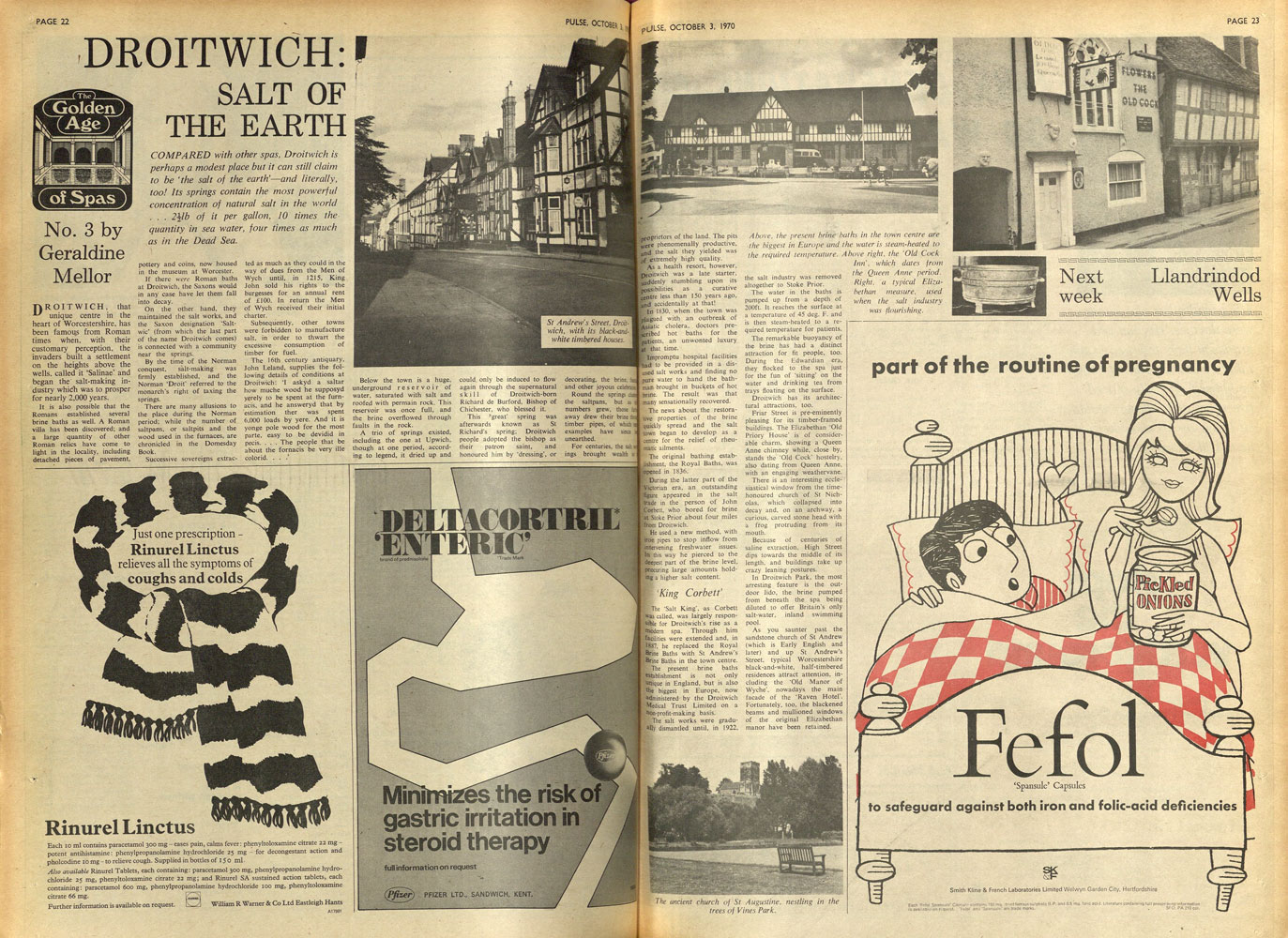
rationing birthday 1970 10 dps 1373x1000px
The then editors were so outraged by the lack of access to the spas that, three years later, they started a six-part series on the ‘Golden age of spas’, featuring Droitwich, Bath and, yes, Harrogate.
Pulse October survey
Take our July 2025 survey to potentially win £1.000 worth of tokens












